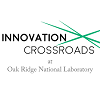
PART 2: Nth Cycle all about recycling to provide secondary source for rare earths
 (EDITOR’S NOTE: This is the second article in a five-part series spotlighting the work of the second cohort of start-ups comprising Oak Ridge National Laboratory’s “Innovation Crossroads” initiative. They arrived in the area in May to begin their two-year effort to further advance their early stage energy-focuses companies.)
(EDITOR’S NOTE: This is the second article in a five-part series spotlighting the work of the second cohort of start-ups comprising Oak Ridge National Laboratory’s “Innovation Crossroads” initiative. They arrived in the area in May to begin their two-year effort to further advance their early stage energy-focuses companies.)
Megan O’Connor has adopted the mantra that all investors like to hear. She’s “all in” as it relates to Nth Cycle, the start-up company that provides a recycling technology to enable a secondary source of rare earth and specialty metals for a sustainable, secure energy future.
And, in spite of several detours along the way – one academic, another a “fork-in-the-road” career decision, and the third a difficult technology problem not solved until the proverbial 11th hour – O’Connor is very optimistic about the future several months into her fellowship as part of the second cohort of Oak Ridge National Laboratory’s (ORNL) “Innovation Crossroads” initiative.
The Plattsburgh, NY native says her interest in entrepreneurship began while an undergraduate student at Union College near Albany, NY. “I wanted to build a technology to solve a big problem,” O’Connor explained.
She went from Union College to Duke University in Durham, NC where, halfway through her doctoral work, O’Connor’s advisor left for Yale University. That individual was Desiree Plata.
“Desiree’s passion for teaching and the environment was the right fit for me personally,” O’Connor says, so she followed the inspirational advisor to New Haven, CT where she finished her academic work at Yale, but graduated with her doctorate from Duke.
“I was a weird Ph.D. student,” O’Connor says in her engaging manner. “It was actually the best of both worlds.” In fact, Plata is now one of the co-founders of Nth Cycle along with Chad Vecitis, the inventor of the base technology and a member of O’Connor’s dissertation committee.
The switch from Duke to Yale also resulted in a change in the doctoral research O’Connor started at Duke. “I switched projects when I moved to Yale,” she says. “My company is a spin out of my second project.”
Midway through the new research endeavor, O’Connor says that she had what she thought was a brilliant idea, only to realize that it was not close to where it needed to be.
“We tried many things and finally got it to work in the final six months of my Ph.D.,” she says. “We founded the company two months before I defended.”
Many people advised O’Connor against pursuing an entrepreneurial path, perhaps not that surprising for a person just earning a doctorate. What happened if the company failed? What about all of the years lost in publishing, something that you have to do in academic circles? Would she be able to enter the academic world and a tenure track later in life if she failed as an entrepreneur? What about future job prospects outside a university if her start-up failed?
“I decided it was worth the risks to my career,” O’Connor says.
Today, the three co-founders are in different cities. Plata is now at MIT, while Vecitis, formerly of Harvard University, is now full-time with Nth Cycle and resides in Milwaukee.
“As fragmented as we may seem, we fit together very well,” O’Connor explains. “I’ve been through the ringer with both of them.”
So, how does “Innovation Crossroads” help advance Nth Cycle and its technology?
“We have a long way to go,” O’Connor says. “We’re an early stage company. We can run our system really well at bench scale, but we need to get to the pilot scale. They (potential customers) are not going to change for someone who hasn’t proved its technology.”
The technology would allow the recycling of rare earth metals like those found in magnets that are currently discarded with old electronics devices. With the U.S. relying so much on foreign countries as a source of these rare earths, recycling them is important. There’s also a focus on reusing waste materials created when electronics are manufactured.
O’Connor is working with three different Principal Investigators at ORNL including two from the Critical Materials Institute. She’s also drawing on the “Innovation Crossroads” team and John Bruck, Lead Mentor from the “Energy Mentor Network” for help on the business side.
“I’m trying to utilize all of the resources while I’m here,” O’Connor says. “I’m really honest with what I don’t know. We are trying to determine where in the value chain we should focus.”
NEXT: Ascend Manufacturing.
Like what you've read?
Forward to a friend!

